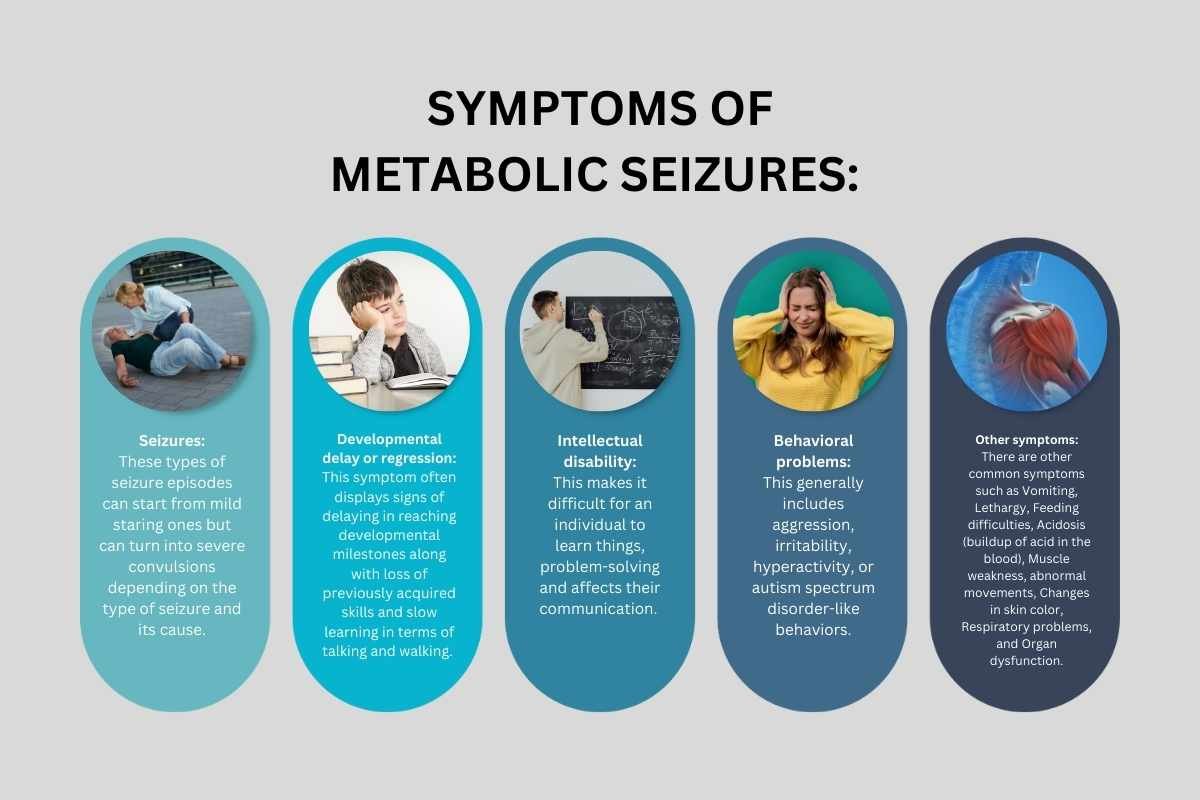Metabolic seizures are extraordinary types of seizures as they are not caused by neurological defects but rather by a chemical imbalance that occurs within the human body. These seizures are usually considered very uncommon types of seizure in comparison to other disorders. They are a rare phenomenon, but they need to be given immediate medical attention. If not given timely treatment, it may further result in severe health conditions.
However, due to the lack of knowledge about these medical issues, people can seek or help their loved ones who are having a seizure episode. Usually, dysfunctional occurrences happen unexpectedly within our bodies. But we should be prepared for whatever the situation is to help our loved ones in case of such medical emergencies. It can be done by understanding them and studying them briefly, which will give us an idea of how to deal with these circumstances eventually. These seizures can be caused by several common and uncommon reasons. By knowing the reasons behind them, we can be cautious and maybe prevent these seizures.
In this article, we will uncover and shed some light on what are metabolic seizures. And go through part by part to understand it thoroughly. From the causes of metabolic seizure to its treatment, we will explore all the possible things to know about it.
What are metabolic Seizures?
Metabolic seizures are seizures caused by basic metabolic disorders. The condition that affects the body to not process food for energy well is called a metabolic disorder. These metabolic disorders can cause seizures when toxins build up in the blood due to these disorders. In other words, metabolic disorders could also lead to chemical imbalances such as low blood sugar, electrolyte disturbances, or kidney dysfunction that disrupt the body’s ability to produce or use energy, which leads to abnormal brain activities that as Seizures. It occurs mainly due to the accumulation of toxic metabolites called ammonia. Metabolic seizures have also displayed different forms of seizures with variable EEG abnormalities as well.
Cause of Metabolic seizures:

Metabolic seizures can be caused by various amino acid metabolic disorders, disorders of energy metabolism, cofactor-related metabolic diseases, purine and pyrimidine metabolic diseases, congenital disorders of glycosylation, and lysosomal and peroxisomal disorders. However, we have listed detailed causes of this metabolic imbalance, which occurs because of 2 major things that are Genetic Disorders and Acquired Metabolic Disorders.
1. Genetic Disorders (Inborn Errors of Metabolism):
➤ Amino acid disorders:
This situation occurs within the body when it loses the ability to break down amino acids, which results in building protein blocks.
Examples: phenylketonuria (PKU) and maple syrup urine disease.
➤ Organic acidurias:
This happens when the body has problems breaking down some organic acids.
Examples: methylmalonic acidemia and propionic acidemia.
➤ Fatty acid oxidation disorders:
This disorder affects the body’s ability to break down fats into energy.
Example: medium-chain acyl-CoA dehydrogenase deficiency (MCAD)
➤ Mitochondrial disorders:
This affects the mitochondria, the powerhouses of the cell, which are responsible for producing energy.
Example: MELAS syndrome and Leigh syndrome.
2. Acquired Metabolic Disorders:
- Hypoglycemia: This happens due to low blood sugar levels
- Hyponatremia: This happens due to low blood sodium levels
- Hypocalcemia: This happens due to low blood calcium levels
- Liver failure
- Kidney failure
- Infections
- Toxins
3. Other Causes:
➤ Dietary deficiencies:
In this case, a lack of essential nutrients like vitamins and minerals.
➤ Electrolyte imbalances:
Abnormal levels of electrolytes such as potassium or magnesium can cause this to happen.
Symptoms of Metabolic seizures:
Metabolic seizures display various ranges of symptoms, which are influenced by the type of metabolic disorder and its severity as well. Here are some of the common symptoms mentioned below:

1. Seizures
These types of seizure episodes can start from mild staring ones but can turn into severe convulsions depending on the type of seizure and its cause.
2. Developmental delay or regression
This symptom often displays signs of delaying in reaching developmental milestones along with loss of previously acquired skills and slow learning in terms of talking and walking.
3. Intellectual disability
This makes it difficult for an individual to learn things, problem-solving and affects their communication.
4. Behavioral problems
This generally includes aggression, irritability, hyperactivity, or autism spectrum disorder-like behaviors.
5. Other symptoms
There are other common symptoms such as Vomiting, Lethargy, Feeding difficulties, Acidosis (buildup of acid in the blood), Muscle weakness, abnormal movements, Changes in skin color, Respiratory problems, and Organ dysfunction.
Treatment
The treatment for metabolic seizures focuses majorly on addressing and understanding metabolic disorders and seizures. We will be understanding the treatment course below for metabolic seizures.
1. Treatment of metabolic disorder:
So, this treatment includes a certain dietary restriction, medication, and enzyme replacement therapy. The individual who is diagnosed with PKU may need to follow a special diet low in phenylalanine. On the other hand, those with certain fatty acid oxidation disorders may require supplements like L-carnitine.
2. Anti-seizure Medication:

There are a few specific medications that help control seizures, such as phenobarbital, valproic acid, and levetiracetam can be advised. These types of medication can only be prescribed depending on the patient’s age and other factors.
3. Supportive Care:
In this treatment, the focus is on other medical problems associated with metabolic disorders, such as acidosis or dehydration.
Additional Considerations:
- Early Diagnosis and Treatment
- Genetic Counseling
- Support Groups
6 Important Things to Know About Metabolic Equivalents

Conclusion:
Metabolic seizure can be a crucial medical condition, and if not given the necessary attention, then this can lead to many serious health issues. You can be caused by various reasons; some can be genetically related, and some can develop over time. We should give it timely treatment before it may harm in any manner. There are various symptoms like seizures, intellectual disability, behavioral problems, and many more that you can pick out to start the diagnosis soon
FAQ:
Can you live a normal life with temporal lobe seizures?
Overall, the prognosis for people with drug-resistant medial temporal lobe epilepsy includes a higher risk for memory and mood problems, lower quality of life, and an increased risk for sudden unexpected death in epilepsy (SUDEP). If surgery can be done to control seizures, these risks and problems can be improved.
What is a metabolic cause of a seizure in EMT?
Several metabolic disorders can cause seizures, including Low blood sugar. Low blood sodium. Hyperosmolar nonketotic hyperglycemia.
What are the metabolic causes of non-epileptic seizures?
These seizures have a physical cause (relating to the body). They include fainting (syncope) and seizures with metabolic causes such as diabetes. Because organic NES have a physical cause, they may be relatively easy to diagnose and treat.







